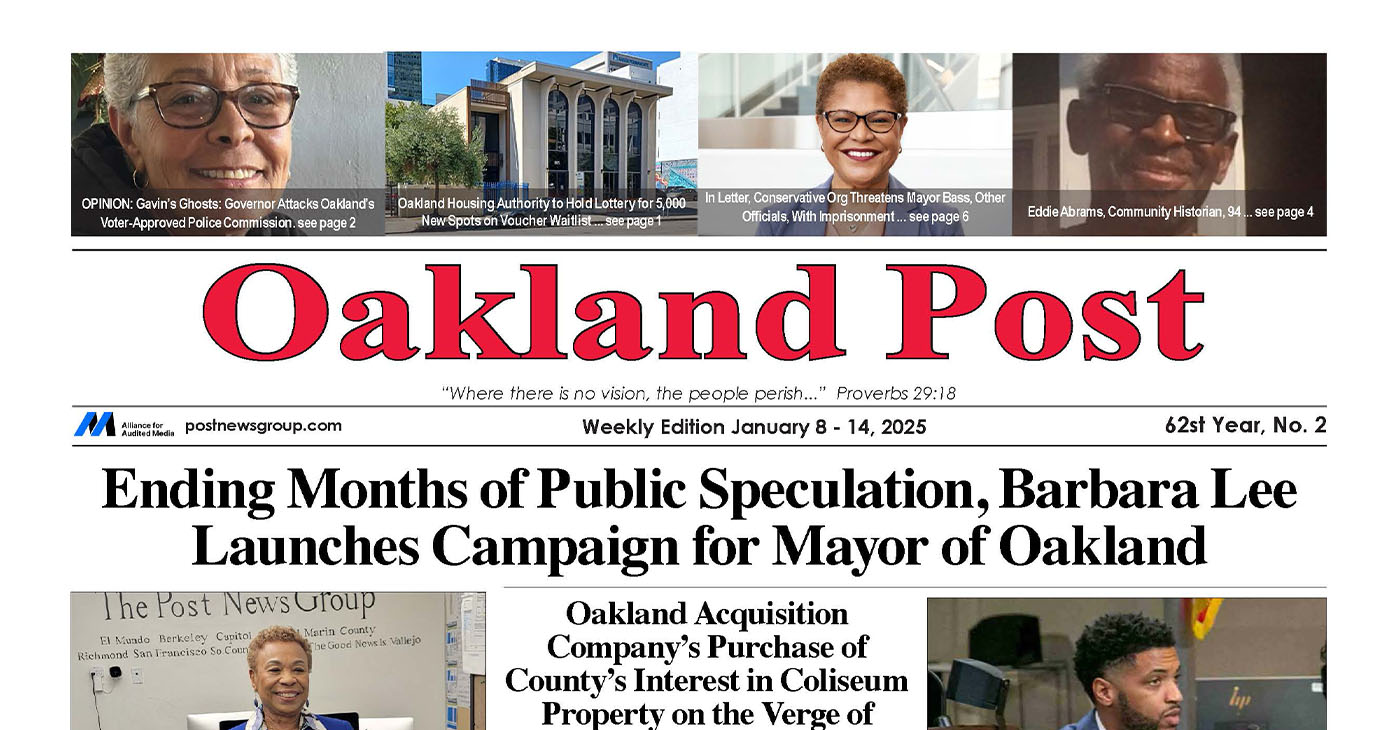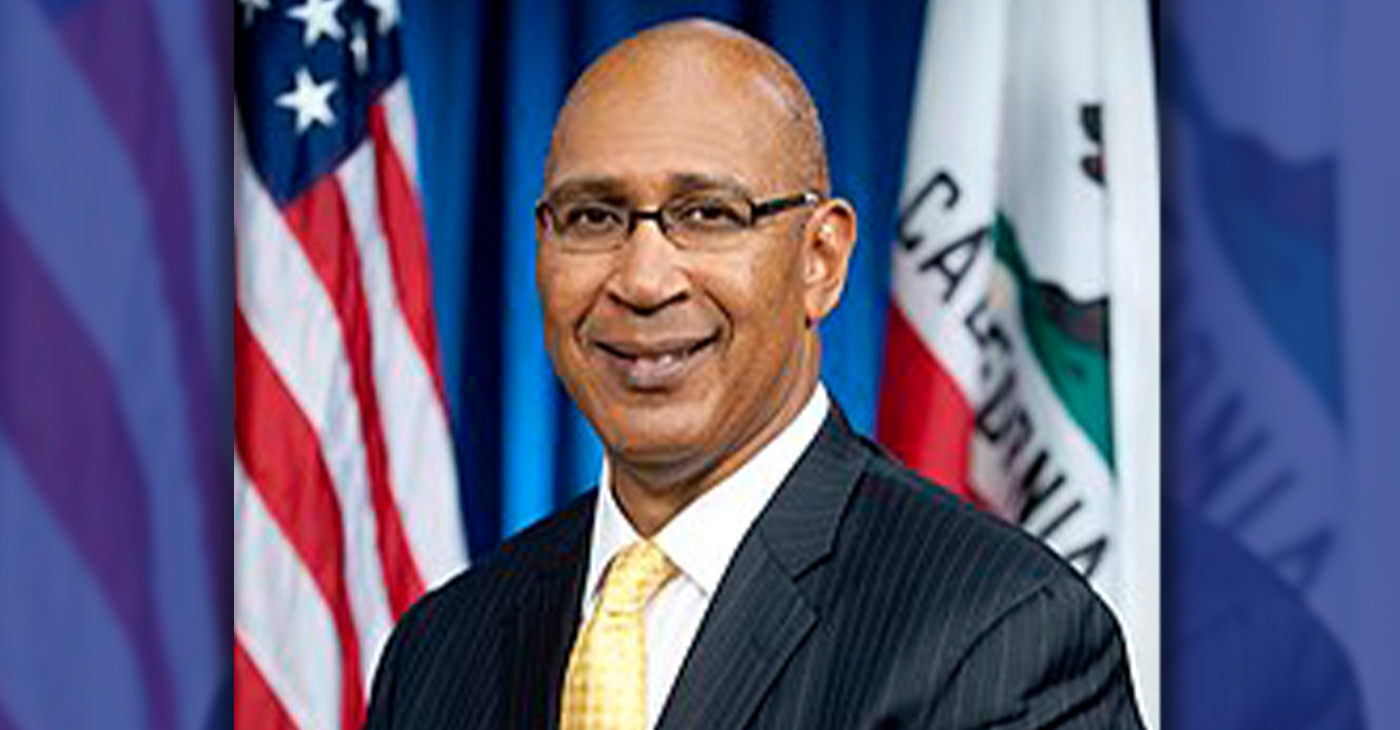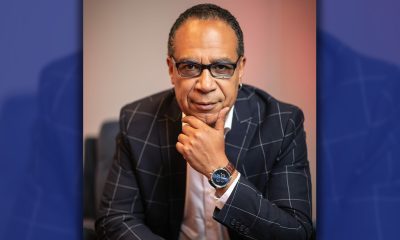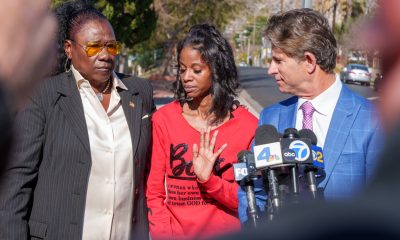California Black Media
Gov. Newsom Announces He Backs a Ban on Cellphones in Schools
Gov. Gavin Newsom wants to restrict the use of smartphones in K-12 schools statewide, he announced on Tuesday. The Governor stated his intentions amid warnings from President Joe Biden on the harmful impact of social media on children. The announcement followed a report released by the U.S. Surgeon General Vivek Murthy that calls on Congress to regulate social media platforms.

By California Black Media
Gov. Gavin Newsom wants to restrict the use of smartphones in K-12 schools statewide, he announced on Tuesday.
The Governor stated his intentions amid warnings from President Joe Biden on the harmful impact of social media on children. The announcement followed a report released by the U.S. Surgeon General Vivek Murthy that calls on Congress to regulate social media platforms.
Proposed regulations include warning labels on harmful content that may hurt minors active on social media. The Governor stated that he plans to sign a law that authorizes school districts to limit or ban the use of smartphones by students or require the supervision of a school employee.
“As the Surgeon General affirmed, social media is harming the mental health of our youth. Building on legislation I signed in 2019, I look forward to working with the Legislature to restrict the use of smartphones during the school day,” said Newsom.
“When children and teens are in school, they should be focused on their studies — not their screens,” he said.
In 2022, Newsom authored a letter urging companies in the tech industry to drop a lawsuit against the children’s online safety law he signed that same year. Newsom aims to take online safety laws a step further allowing school districts to ban or limit the use of smartphones to help protect children from the harmful effects of social media.
The California School Boards Association argues that any rules on the use of smartphones should be regulated by school districts as opposed to the state.
Troy Flint, the school board association’s spokesperson, said that school districts should make the final decision on regulations over smartphones.
“We support legislation which empowers school leaders to make policy decisions at a local level that reflect their community’s concerns and what’s necessary to support their students,” said Flint.
The Los Angeles Unified School District (LAUSD) supports Gov. Newsom’s plan to ban smartphones during school hours, stating that smartphones and devices distract students from learning and facilitate cyberbullying.
On June 18, LAUSD voted to ban the use of cellphones during the school day.
In a similar light, Sen. Henry Stern (D-Malibu) proposed SB 1283 earlier this year. If passed, the legislation will give school districts more authority to limit the use of social media at school. SB 1283 is currently under review in the Assembly Education Committee.
“It’s just too hard for every teacher, every school, or every parent to have to figure this out on their own,” said Stern. “There are sometimes when government just has to step in and make some bigger rules of the road.”
A similar bill, AB 3216, introduced by Assemblymembers Josh Hoover (R-Folsom), Josh Lowenthal (D-Long Beach) and Al Muratsuchi (D-Rolling Hills Estates), is being considered by the Senate Education Committee.
The bills would take effect in January if passed by the Legislature and is approved by the Board of Education in school districts that support the cellphone ban.
Activism
Oakland Post: Week of January 8 – 14, 2025
The printed Weekly Edition of the Oakland Post: Week of January 8 – 14, 2025

To enlarge your view of this issue, use the slider, magnifying glass icon or full page icon in the lower right corner of the browser window.
Activism
2024 in Review: 7 Questions for Former Assemblymember Chris Holden
While in office, Holden championed efforts to improve education outcomes for students and advocated for social and racial justice. Legislation he wrote or sponsored also focused on, innovation in transportation, protecting developmental disability service providers and improving public health, more broadly.

By Edward Henderson, California Black Media
In 2012, Assemblymember Chris Holden was first elected to the California State Assembly representing the 41st District in the San Gabriel Valley.
He was re-elected to that position for the following four terms.
While in office, Holden championed efforts to improve education outcomes for students and advocated for social and racial justice. Legislation he wrote or sponsored also focused on, innovation in transportation, protecting developmental disability service providers and improving public health, more broadly.
Holden, a graduate of San Diego State University, lives in Pasadena with his wife, Melanie, and children Nicholas, Alexander, Austin, Mariah and Noah. Holden is the son of former State Senator and LA City Councilmember Nate Holden.
Before he closed out his final year of service in the Assembly, California Black Media (CBM) spoke with Holden. He reflected on his accomplishments this year and his goals moving forward.
Looking back at 2024, what stands out to you as your most important achievement and why?
A project I’ve been working on for well over 36 years — the light rail system — made its way into Pasadena from downtown LA. Now it’s making its way through the San Gabriel Valley to Pomona.
How did your leadership and investments contribute to improving the lives of Black Californians?
Having an opportunity to represent a multi-ethnic and diverse district is exciting, but to be able to bring a voice for a lived African American experience from the San Gabriel Valley is very important.
What frustrated you the most over the last year?
I still am frustrated that we aren’t seeing the kind of progress on affordable housing to allow underrepresented communities to be able to afford to live in the community that they grew up in.
What inspired you the most over the last year?
There has been a lot of movement around reparations through community engagement. Dr. Shirley Weber put forth the bill to establish a reparations task force and that task force met for a number of years. Two members of our caucus served on it, Sen. Steven Bradford and Assemblymember Reggie Jones-Sawyer. A thousand-page report and a hundred recommendations or more came out of that. And now we’re in the process of finding ways to implement some of those recommendations. It’s going to be a longer process, but I’m hopeful because California, once again, is on the front end of taking on a really challenging issue.
What is one lesson you learned in 2024 that will inform your decision-making next year?
Always be mindful how quickly the winds can change. We’ve gone from 10 years of having budget surpluses to this year having a $45 billion deficit.
In one word, what is the biggest challenge Black Californians face?
Inequality.
What is the goal you want to achieve most in 2025?
Well, I won’t be in the legislature in 2025, but I love public policy. I’d like to find myself in a position where I’m continuing to have an influence on how public policy is shaped and formed. I’m just looking forward to being a vital voice going into next year in a different role. It will also be an opportunity to lay a foundation to take another run, possibly for a seat on the LA County Board of Supervisors in 2028.
Activism
2024 in Review: 7 Questions for Equality California Political Director Shay Franco-Clausen
Shay Franco-Clausen is an award-winning public advocate, speaker, political strategist and former elected official. She has contributed her thought leadership to drafting seventeen pieces of legislation in California. Notable among these accomplishments is her role in extending the statute of limitations for felony domestic violence survivors, advocating for the rights of foster youth, preserving endangered open spaces, and championing the restoration of voting rights for individuals on parole.

By Edward Henderson, California Black Media
Shay Franco-Clausen is Political Director for Equality California, the nation’s largest statewide LGBTQ+ civil rights organization.
Franco-Clausen is an award-winning public advocate, speaker, political strategist and former elected official. She has contributed her thought leadership to drafting seventeen pieces of legislation in California. Notable among these accomplishments is her role in extending the statute of limitations for felony domestic violence survivors, advocating for the rights of foster youth, preserving endangered open spaces, and championing the restoration of voting rights for individuals on parole.
California Black Media (CBM) spoke with Franco-Clausen about her successes, frustrations and future plans heading into 2025.
Looking back at 2024, what stands out to you as your most important achievement and why?
In the role that I sit in as the political director for Equality California, we endorsed 216 candidates. I think the one achievement after this election that I’m proud of is that we overturned Prop 8 to protect same-sex marriages here because they’re about to attack our rights on the federal level, come 2025.
I’m glad at least we changed our California constitution to reflect and protect my marriage.
How did your leadership and investments contribute to improving the lives of Black Californians?
I contribute through my lived experience. I may have achieved a lot, but I come from those same communities that are marginalized, East Oakland, East San Jose, Watts. It gives me a different perspective. I am a formerly incarcerated youth who was in foster care. I think I contribute that bit of understanding, and I operate from an equity lens. I’m willing to push people to make them recognize that hey, you cannot forget about Black people. We are the most marginalized.
What frustrated you the most over the last year?
What frustrates me is our inability to recognize that we forget people. I was tapped to work on the Harris campaign from Equality California. And through that, being at that table, I was frustrated that they weren’t listening to Americans and not looking at the data.
The reason Trump won is because he had consistent messaging, and we didn’t debunk it. I think I’m more frustrated that we don’t fully listen to people all the time when they’re critiquing us.
What inspired you the most over the last year?
All those people that came out to support Kamala Harris. I was proud that my son voted for the first time for a Black woman for President.
What is one lesson you learned in 2024 that will inform your decision-making next year?
Be fearless. Sometimes I second-guess myself. I push back, but I could push more because I’m qualified. I have the education, I have the experience, and I know what I’m talking about in all the rooms that I go in. And I must be confident in that.
In one word, what is the biggest challenge Black Californians face?
Prioritization.
We’re still not seen as a priority, but everyone likes to add us to their talking points.
What is the goal you want to achieve most in 2025?
Writing a book. I think it’s important for us to tell our stories.
I am also kicking off my campaign for Hayward City Council.
-

 Activism3 weeks ago
Activism3 weeks agoBooks for Ghana
-

 Arts and Culture4 weeks ago
Arts and Culture4 weeks agoPromise Marks Performs Songs of Etta James in One-Woman Show, “A Sunday Kind of Love” at the Black Repertory Theater in Berkeley
-

 Bay Area3 weeks ago
Bay Area3 weeks agoGlydways Breaking Ground on 14-Acre Demonstration Facility at Hilltop Mall
-

 Activism4 weeks ago
Activism4 weeks ago‘Donald Trump Is Not a God:’ Rep. Bennie Thompson Blasts Trump’s Call to Jail Him
-

 Activism3 weeks ago
Activism3 weeks agoLiving His Legacy: The Late Oscar Wright’s “Village” Vows to Inherit Activist’s Commitment to Education
-

 Arts and Culture3 weeks ago
Arts and Culture3 weeks agoIn ‘Affrilachia: Testimonies,’ Puts Blacks in Appalacia on the Map
-

 Alameda County3 weeks ago
Alameda County3 weeks agoAC Transit Holiday Bus Offering Free Rides Since 1963
-

 #NNPA BlackPress4 weeks ago
#NNPA BlackPress4 weeks agoCalifornia, Districts Try to Recruit and Retain Black Teachers; Advocates Say More Should Be Done




















































